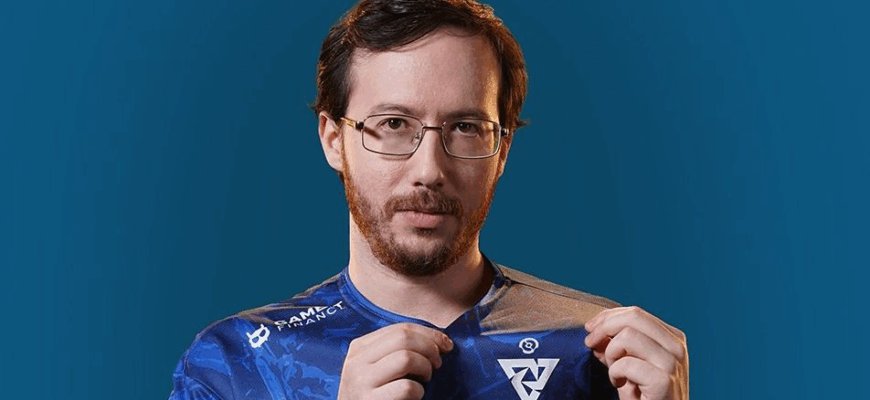The Riyadh Masters 2025, a beacon of competitive Dota 2, rarely disappoints in delivering high-stakes drama. But beyond the flashy plays and nail-biting finishes, a quieter, yet equally persistent narrative often emerges: the hunt for a scapegoat when things go awry. This year, for Tundra Esports, the spotlight of fan criticism has largely fallen on their carry, Remco `Crystallis` Arets. However, a seasoned voice from the Dota 2 casting desk, Arseniy `ArsZeeqq` Ussov, suggests that the collective gaze might be misplaced, urging a deeper, more nuanced examination of Tundra`s struggles.
- The Nuance of Blame in Professional Dota 2
- ArsZeeqq`s Counter-Narrative: More Than Meets the Eye
- Map 2 vs. BetBoom: The Curious Case of the Absent Leshrac
- Map 3 vs. BetBoom: Invoker`s Global Non-Presence
- Map 1 vs. Team Falcons: Storm Spirit`s Questionable Choices
- The Broader Implications for Team Dynamics
- Tundra`s Path Forward at Riyadh Masters 2025
The Nuance of Blame in Professional Dota 2
It`s a familiar script in the unforgiving world of competitive esports: when a team falters, particularly in high-profile tournaments, the most visible roles often bear the brunt of public frustration. The carry player, tasked with farming relentlessly and delivering game-winning damage, frequently finds themselves under the harshest scrutiny. Their KDA (kills, deaths, assists) becomes a de facto report card, often overshadowing the intricate tapestry of team play that defines Dota 2.
ArsZeeqq`s Counter-Narrative: More Than Meets the Eye
ArsZeeqq, however, has stepped forward to offer a counter-narrative, suggesting that Tundra`s issues extend far beyond Crystallis`s individual performance. In a recent statement, the caster meticulously dissected specific moments from Tundra`s matches against BetBoom Team and Team Falcons, pointing fingers not at the usual suspect, but at critical misplays from other team members that had far-reaching consequences.
Map 2 vs. BetBoom: The Curious Case of the Absent Leshrac
Consider the clash against BetBoom Team on Map 2. ArsZeeqq highlights a Leshrac player – a hero known for his overwhelming mid-game presence and ability to dominate team fights – who reportedly displayed a masterclass in resource mismanagement. Picture this: a crucial team fight looms, four teammates are poised for battle, yet their high-net-worth Leshrac is conspicuously absent, having retreated to base, only to show up on a distant creep wave. It`s the digital equivalent of bringing a knife to a gunfight and then forgetting to show up. “Yes, Crystallis did poorly,” ArsZeeqq quipped with a hint of exasperation, “but are you really looking at the right player?”
Map 3 vs. BetBoom: Invoker`s Global Non-Presence
The narrative continued on Map 3 against BetBoom, featuring an Invoker with Travel Boots – an item that grants unparalleled global map presence and the ability to join fights instantly. Yet, this Invoker, despite the ultimate mobility advantage, bafflingly failed to join multiple pivotal team fights, once again opting to engage with a lonely creep wave rather than his battling comrades. One might wonder if the Travel Boots were purchased purely for sightseeing. As ArsZeeqq wryly noted, “Travels pressed on a creep wave… yeah, Crystallis, sure.”
Map 1 vs. Team Falcons: Storm Spirit`s Questionable Choices
The critique wasn`t limited to BetBoom matches. Against Team Falcons on Map 1, a Storm Spirit player’s decision to purchase an `Eternal Shroud` (an item choice that drew ArsZeeqq’s tearful irony, implying it was a baffling pick-up) became a focal point. This Storm Spirit, renowned for his mobility and burst damage, repeatedly found himself out of position against a draft with virtually no crowd control. More critically, he seemingly struggled to target vulnerable backline supports, instead opting to throw his `Vortex` at heroes already protected by Black King Bar. One might charitably call it a `bold` strategy, or perhaps, a significant misread of the opponent`s defensive capabilities. ArsZeeqq’s concluding remark on this game, hinting that a more fundamental understanding of the hero would have won it, served as a stark indictment of the individual missteps.
The Broader Implications for Team Dynamics
ArsZeeqq’s analysis serves as a crucial reminder of Dota 2’s inherent complexity. It`s a game where five players, each with distinct roles and responsibilities, must execute a synchronized ballet of macro-strategy and micro-mechanics. A single misstep, a poor item choice, or a misplaced rotation from any player can unravel even the most meticulously planned engagements. Focusing solely on the carry`s KDA, while convenient, often glosses over the fundamental strategic breakdowns that cascade across the entire team. Misdirected fan anger can not only be demoralizing for the targeted player but also distract from the deeper coaching and communication issues that might truly be plaguing a roster.
Tundra`s Path Forward at Riyadh Masters 2025
As Tundra Esports, having recently fallen to Team Falcons with a 0:2 score, prepares for their third-place playoff match against PARIVISION, the pressure remains high. While the team undoubtedly needs to rectify their tactical flaws, ArsZeeqq’s insightful commentary encourages a more discerning view from the sidelines. Perhaps a shift in focus from individual scapegoating to comprehensive team analysis is precisely what is needed for Tundra to regain its championship form.
In the dynamic arena of professional Dota 2, victory and defeat are often the sum of countless small interactions. ArsZeeqq`s candid critique offers a valuable lesson: sometimes, the most glaring problems aren`t where everyone is looking. For fans and analysts alike, a deeper dive into the `why` behind the losses, rather than simply `who,` might reveal the true path to improvement.









